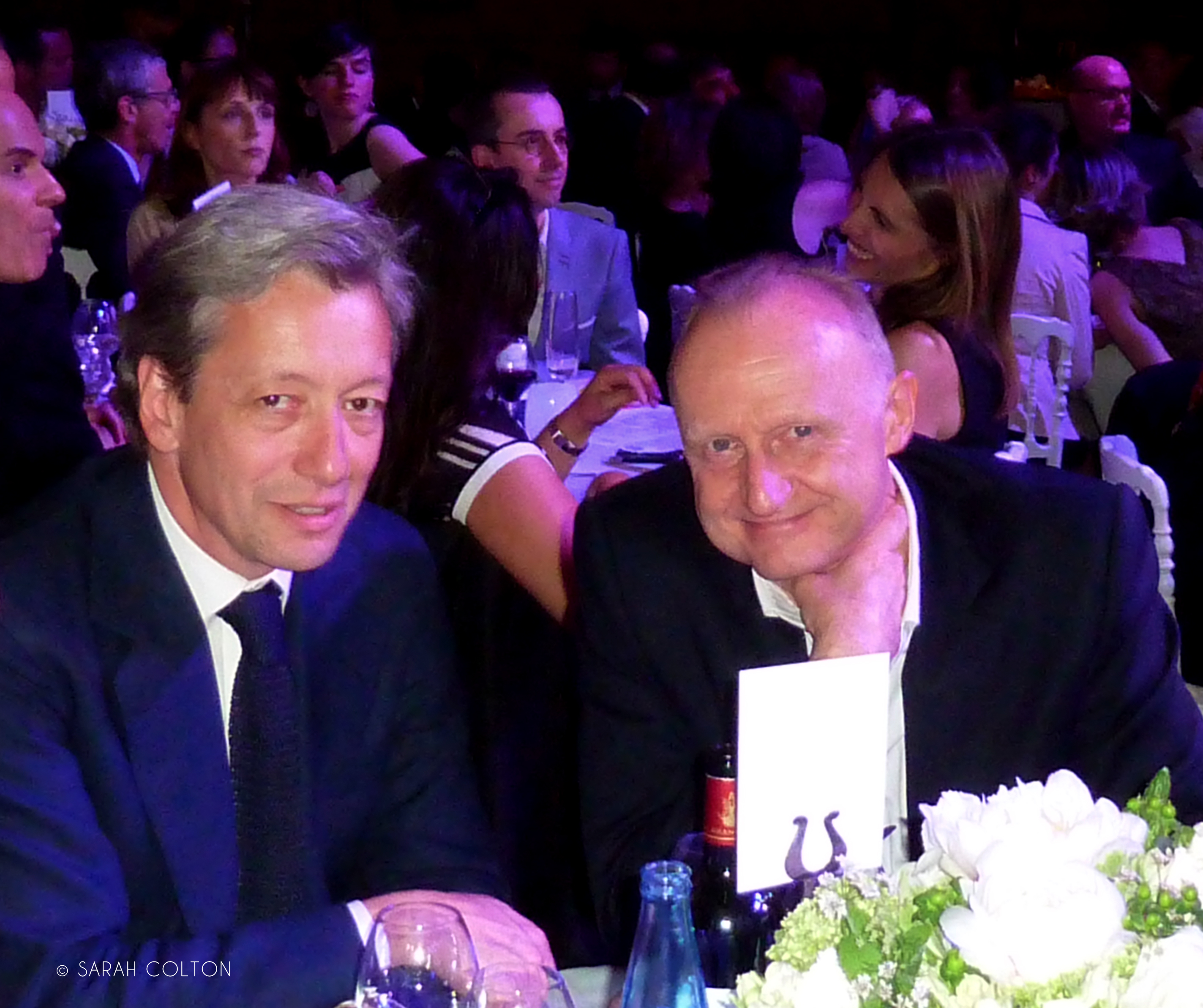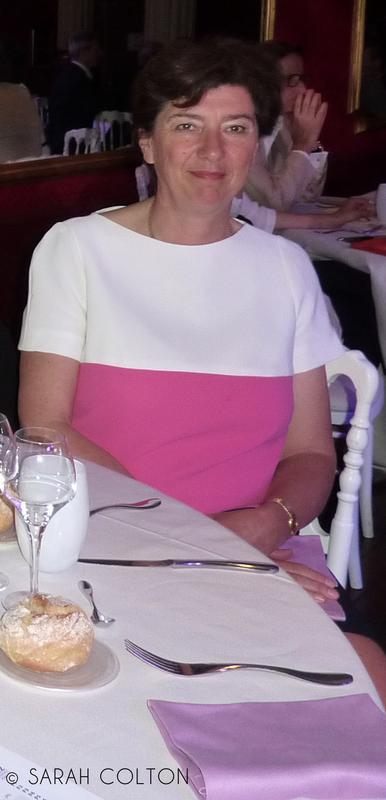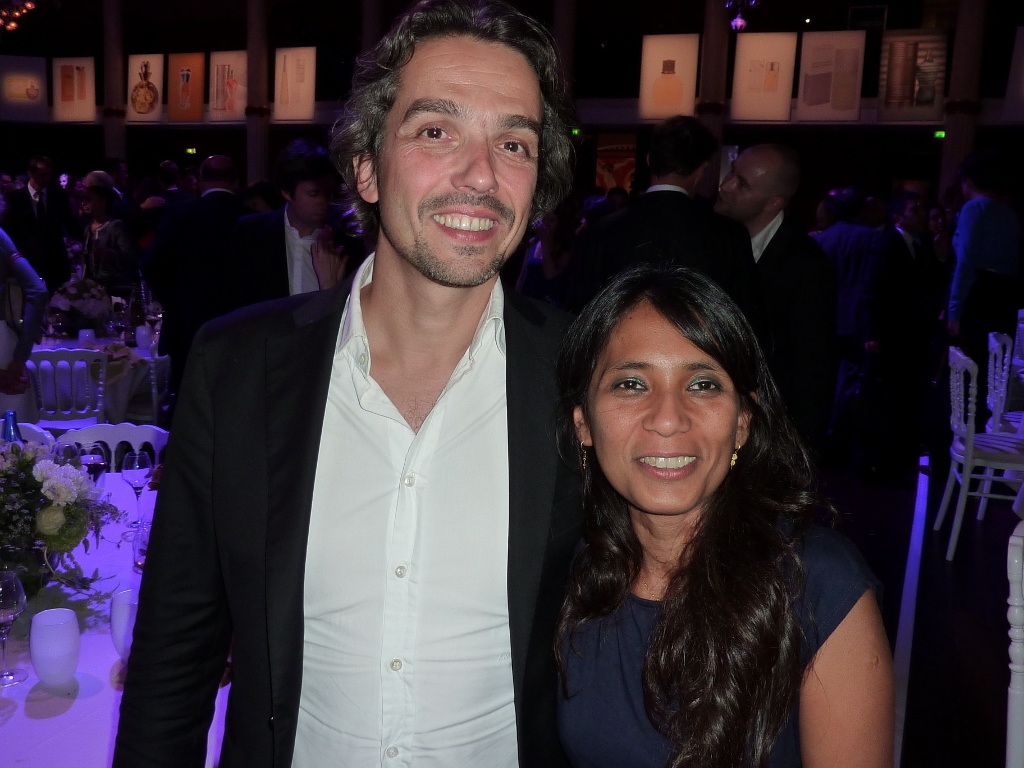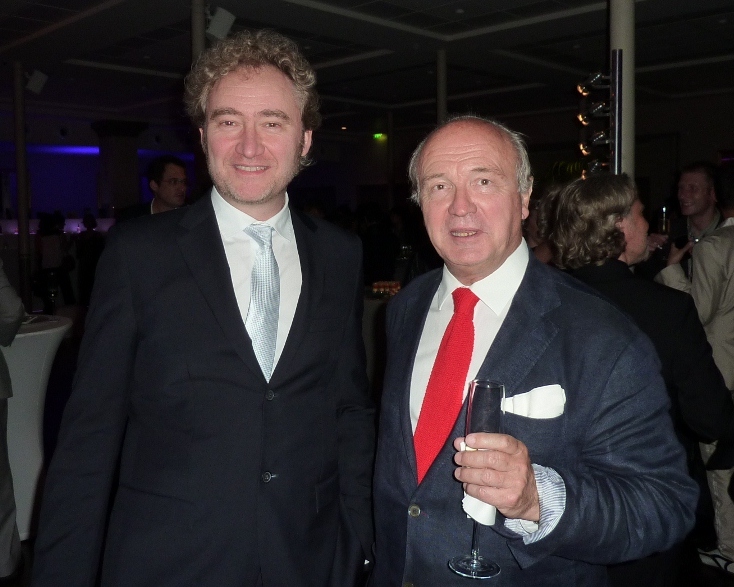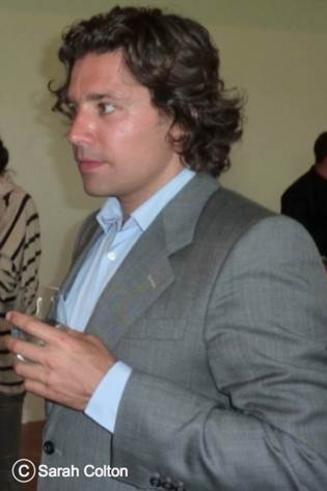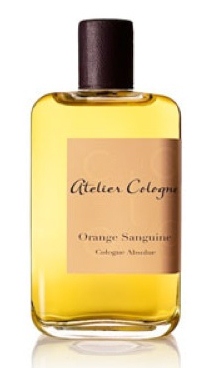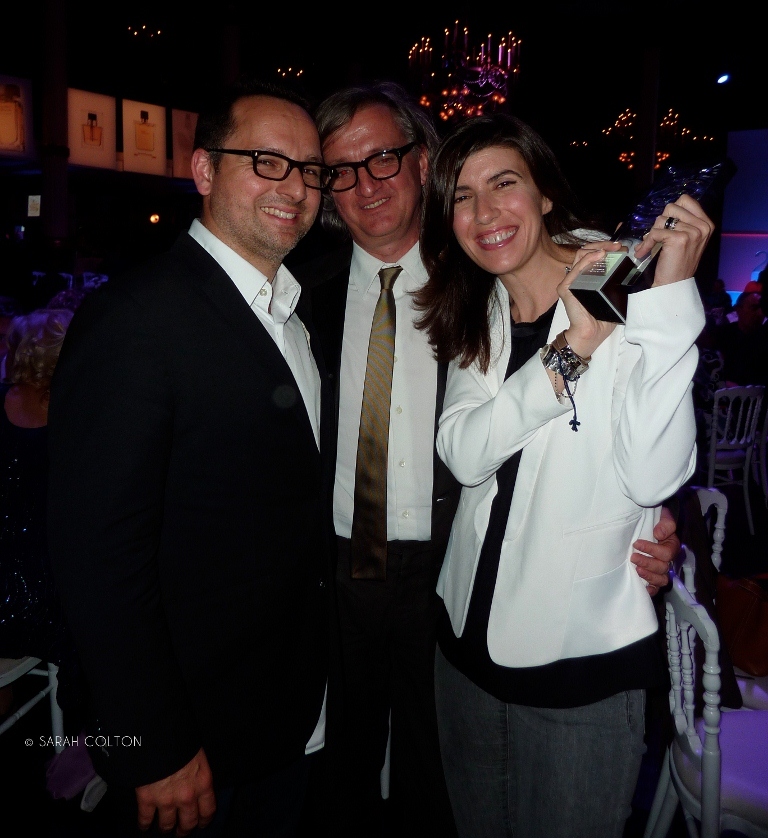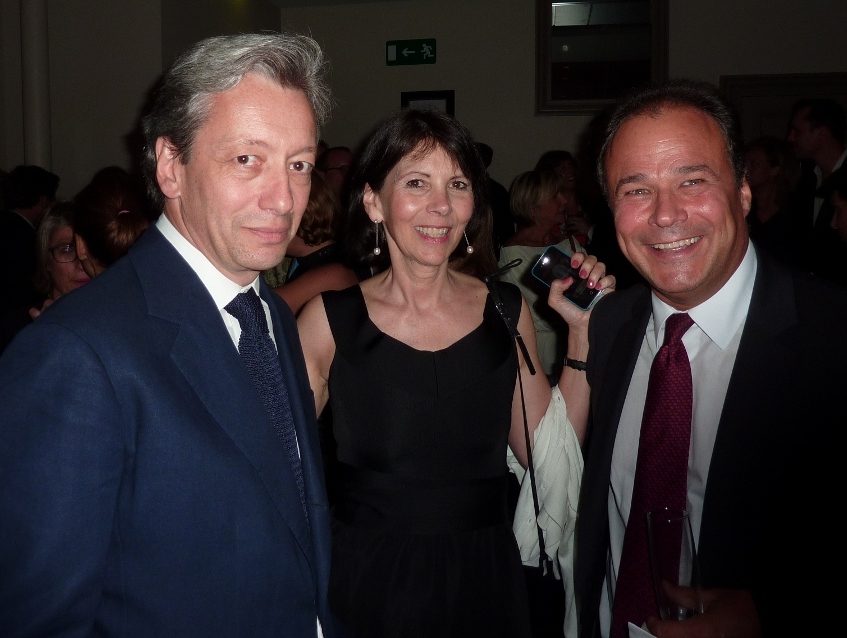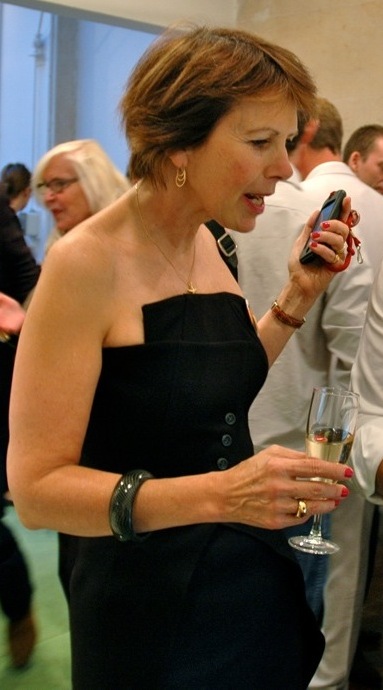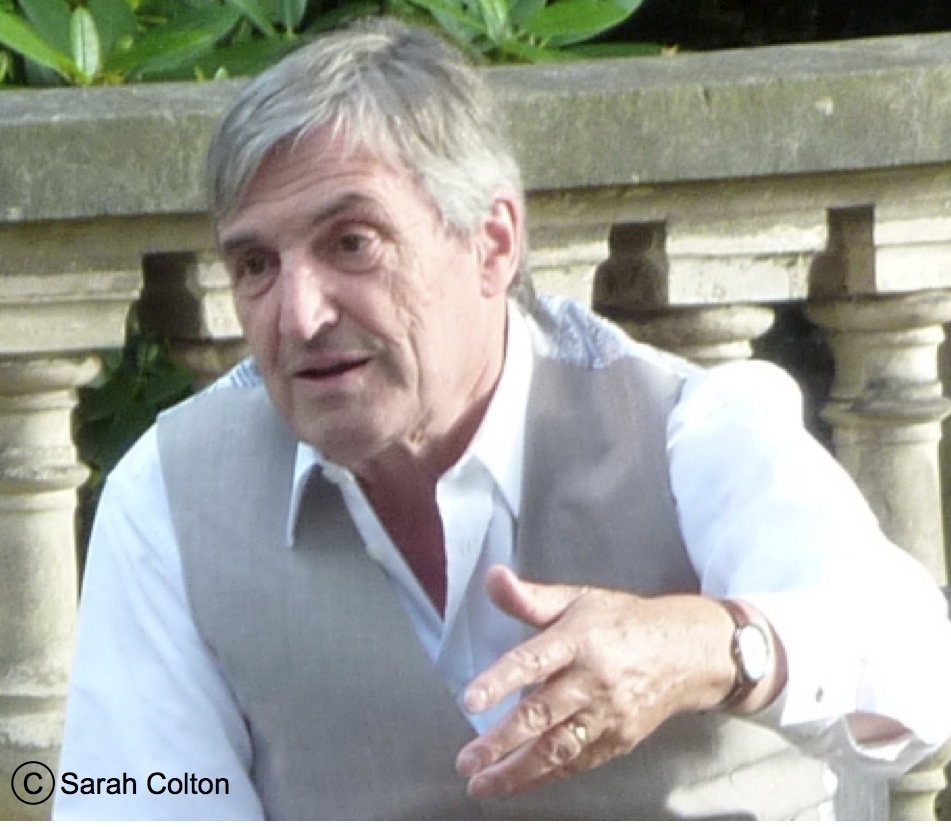August 23, 2012

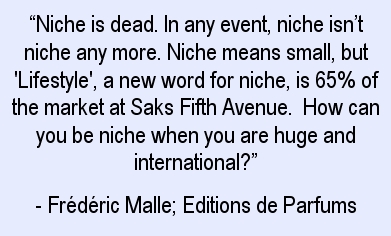
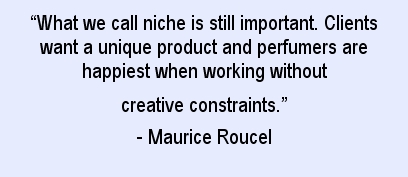
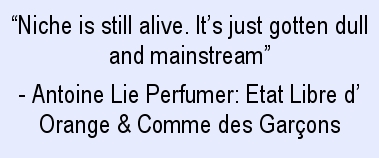
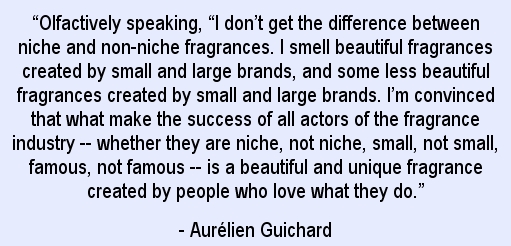
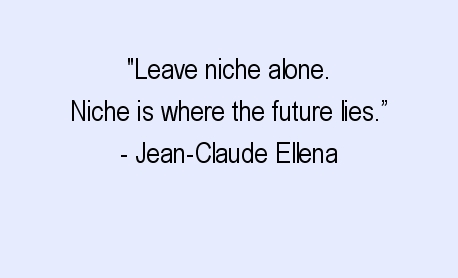
It’s been more than thirty years since the ‘niche’ perfume current first swept into the perfume world, and by putting creativity first -- above marketing and financial interests -- upset traditional perfumery and led the industry in an bold new direction. In the face of giants, niche was small, lively, and potent. Today, niche still generates a powerful buzz despite conflicting opinions about its definition, size, and even its continued existence.
The annual French Fifi Awards in June offered a rare occasion to reflect on these questions. It was only in 2010 that niche fragrances gathered enough clout to be considered worthy of a Fifi Award. Now, in its third year, I wondered what this award represented in 2012?
I was happy to see that many top niche players were circulating in the crowd, so it was easy enough to find answers. Not surprisingly though for a phenomenon as multifaceted as niche, cocktail conversations revealed contradictory currents, and those at dinner and the award, itself, brought surprises.
Frédéric Malle and Dominique Ropion, Perfumer IFF
Patricia de Nicolai
“Niche has become a misnomer,” Patricia de Nicolaï told me. “But the name sticks.” A perfumer with her own eponymous brand, half a dozen independent boutiques in Paris and London, and the President of L’Osmothèque, Patricia is a respected perfume authority and powerful niche player.
“When I founded Parfums de Nicolaï in 1987, shortly after the creation of the first niche brands, Les Artisans Parfumeurs and Annick Goutal, niche was small.”
Patricia explained how in the late seventies and eighties, newly globalized corporate structures of many traditional perfume brands concentrated their energy and money on marketing strategies, while ignoring and essentially smothering creativity. Consumers became bored with the resulting soul-less perfumes. By putting creativity first and ahead of marketing strategies, niche brands created innovative, original perfumes and attracted clients away from traditional brands. When big brands like Chanel, Hermes, and Cartier realized what was happening they began creating ‘exclusives’, their own ‘creative niche’ perfumes within their brands.
“Today, niche is confusing,” Patricia admitted. “There are small luxury brands and the ‘exclusives’ of big brands, which are, of course, huge. When people speak of niche, they’re primarily speaking of ‘luxury’ or ‘exclusive’ fragrances, big or small.”
Immediately following my conversation with Patricia I was happy to see Shyamala and Antoine Maisondieu, both perfumers with extensive experience with niche brands. Shyamala Maisondieu has composed fragrances for Tom Ford’s Private Blend, Comme des Garcons, and Etat Libre d'Orange. She agreed that niche has changed its meaning over the last few years. “It used to be that niche was something underground-like, and known only by a happy few,” she said. “Nowadays, niche means ‘different from the mainstream’ and at the same time luxurious, expensive, and prestigious. But it’s not necessarily small any more. Big brands like Dior and Prada are doing it too, though on a smaller scale than their usual products.”
Antoine Maisondieu, who has created for Comme des Garçons, Tom Ford, Aqua di Parma, and Etat Libre d'Orange had this to add. “For me niche should be brands that are more daring, where the fragrance is more important than the marketing. Unfortunately it is not always the case.”
Feeling enlightened, I spotted Frédéric Malle, visionary classic luxury niche player, creator of Editions de Parfums Frédéric Malle, and, not surprisingly surrounded by a gaggle of admirers. Dinner was announced and I was able to get a word with him on the way to the ballroom. “Niche is dead,” Frédéric was categorical. “In any event, niche isn’t niche any more. Niche means small, but 'Lifestyle', a new word for niche, is 65% of the market at Sax Fifth Avenue. How can you be niche when you are huge and international?”
Editions de Parfums Frédéric Malle, he insisted, is ‘luxury’ or as some call it ‘prestige’, not niche. He also said perfume categories are no longer ‘niche’ and ‘selective’, but rather ‘luxury’ and ‘ordinary’. That’s all. “These are two parallel concepts and markets, with no interaction between them,” he said. “ ‘Luxury’ doesn’t challenge or inspire ‘ordinary’ any more than BMW does Renault.”
Following this conversation, Maurice Roucel, perfumer for both traditional and niche fragrance brands, including Editions de Parfums Frédéric Malle, offered a timely nugget. “What we call niche is still important,” he said. “Clients want a unique product and perfumers are happiest when working without creative constraints.”
On the way to my table, Antoine Lie, perfumer for niche brands Etat Libre d’Orange and Comme des Garçons appeared at my elbow. “Niche is still alive,” he said. “It’s just gotten dull and mainstream.”
Lie suggested that a good explanation of the niche paradox might be ‘Le parfum est mort. Vive le parfum!’ This is the motto of Etienne de Swardt’s ‘bad boy’ niche perfume brand, Etat Libre d’Orange, and winner of the niche Fifi award last year with ‘Tilda Swinton Like This’.
“Granted,” Lie conceded. “It’s nothing like the good old days when Etienne would say, ‘Let’s have some fun. Make me a fragrance that only five people in the world will want to wear.’”
Perfumers Antoine and Shyamala Maisondieu
“It used to be that niche was something underground-like, and known only by a happy few. Nowadays, niche means ‘different from the mainstream’ and at the same time luxurious, expensive, and prestigious. But it’s not necessarily small any more. Big brands like Dior and Prada are doing it too, though on a smaller scale than their usual products.”
- Perfumer Shyamala Maisondieu
Frédéric Malle, Sarah Colton, and Laurent Bourdeau of Givaudan
Just as I was sitting down, Aurélien Guichard stopped at my table. Aurélien creates for a number of traditional brands as well as being the exclusive perfumer for niche brand, Robert Piguet. “Olfactively speaking,” Aurélien said, “I don’t get the difference between niche and non niche fragrances. I smell beautiful fragrances created by small and large brands, and some less beautiful fragrances created by small and large brands. I’m convinced that what make the success of all actors of the fragrance industry -- whether they are niche, not niche, small, not small, famous, not famous -- is a beautiful and unique fragrance created by people who love what they do.”
At dinner I was seated next to Sylvie Ganter and Christophe Cervasel, owners of Atelier Cologne, a relatively new luxury ‘niche’ brand. Hearing their simple story of wanting to create something truly different -- fragrances with the freshness of cologne and the staying power of perfume -- I caught a whiff of the good old days Antoine had spoken of. I also thought, “These ingénues will be eaten alive by this sophisticated Fifi crowd.” Sylvie went on to tell me that Frédéric Malle had introduced Christophe and her to Ralf Schwieger, the perfumer for ‘Orange Sanguine’, their contender for the niche Fifi award, and that Frédéric and other ‘niche’ pioneers had opened the way for them and their generation. As she spoke it became clear that compared to the greenness of niche in the early days of the movement, today’s niche had grown up.
Moments later, Sylvie, Christophe, and Ralf were walking towards the podium and the Niche Award trophy was hoisted above the crowd on Sylvie’s small shoulders. Somewhere beyond the applause, I sensed an echoing refrain: “Niche is dead. Long live niche!”
Antoine Lie and Patrick St. Yves
The Fifi story ends here, but the niche story continues and would not be complete without a word from the person whom many credit as being the father of niche, Jean-Claude Ellena. One of the early perfumers for L’Artisan Parfumeurs, Jean-Claude is also the founder of The Different Company, and a perfumer for Editions de Parfums Frédéric Malle. When Jean-Claude became the exclusive in-house perfumer for Hermès in 2004, he essentially brought niche along with him, and the Hermès Hermessence fragrances express the niche philosophy. Although Jean-Claude was not at the Fifis event on the 26th, I was able to catch a word with him a few days later.
“The problem with niche these days is that there is real niche and fake niche, and ordinary people can’t tell the difference between them,” Jean-Claude said. “The fakes are the huge companies which though pretending to do otherwise, still put marketing first, which is in direct opposition to the concept of niche.”
In spite of this, Jean-Claude said he is optimistic about the future of niche perfumes, and still believes what I heard him say several years ago at a lecture given to the French Society of Perfumers. “Leave niche alone,” he admonished the large perfume brands. “Niche is where the future lies.”
Christophe Cervasel, Ralf Schwieger, Sylvie Ganter with “Niche” Fifi trophy
About Sarah Colton;
The Perfume Magazine Paris Correspondent
The Perfume Magazine gives a huge warm welcome to its new Paris Correspondent, Sarah Colton. Ms. Colton is the quintessential "American in Paris" and has lived in Paris for over twenty years. Sarah Colton has the reputation of being one of the most passionate journalists one could ever meet in the perfume industry. She comes from a literary background, having a BA from the University of North Carolina at Chapel Hill. She quit her job as a legislative assistant of a US Congressman on Capitol Hill, cashed in all of her savings, and moved to Europe with nothing but a small canvas suitcase stuffed with dreams of adventure. Three years later she had completed a Master's Degree at the University of London and her articles and fiction have appeared in publications such as Glamour and Redbook. Continuing her adventures, she then met, Pierre, the Frenchman she would later marry.
Ms. Colton has also published short stories various places, contributed articles to Paris Joyce (former French fashion magazine), and wrote her first novel, Tilt 68 which was published in 2008. She is also a featured journalist with her column titled "Notes From Paris" with the industry magazine, Beauty Fashion.
Ms. Colton has written professionally about perfume and the fragrance industry for many years; highlighting leading French perfumers and French Perfume Houses. She has also been a guest lecturer for the "Friends of L'Osmotheque" in Paris. Ms. Colton also enjoys friendships with industry professionals and perfumers in Paris and her vast and in-depth "hands on experience" and contributions to the fragrance industry make her a perfect fit for The Perfume Magazine. She can be found at new fragrance launches in Paris and important French perfume events, happily enjoying all that perfume and her Paris life have to offer. She is currently working on second novel about leaving home and finding herself in a foreign place -- guess where?!.
Sarah Colton divides her time between Paris, France and Asheville, NC.
The Perfume Magazine Exclusive
The New Niche
By Sarah Colton
Aurélien Guichard
Jean-Claude Ellena
The Perfume Magazine's "Tour de Force" Paris Correspondent Sarah Colton, takes us on a perfumed journey and speaks with The French niche Perfumers at the 2012 world-renowned French FIFI's: Patricia de Nicolaï, Frédéric Malle, Maurice Roucel, Shyamala and Antoine Maisondieu, Antoine Lie, Aurélien Guichard and the “Father of Niche", Jean-Claude Ellena” about Niche Perfumery.
Photo Credit: Courtesy of Mme. Gunnhild Bjornsti
